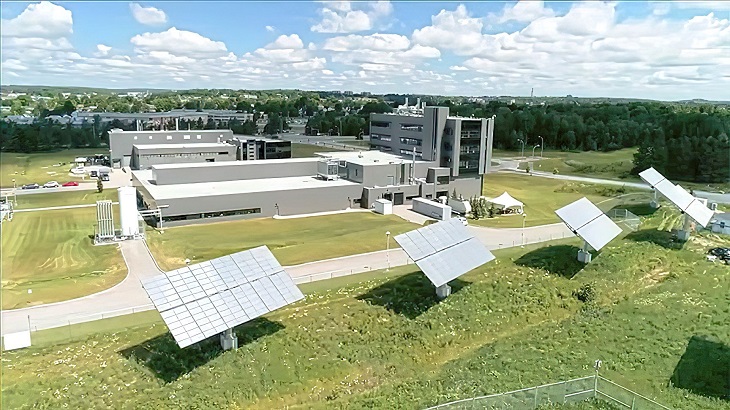
MONTREAL — Bell announced today it has been recognized for its environmental, social and governance (ESG) performance in corporate responsibility and environmental standards by Corporate Knights magazine.
Bell was named the top telecom and fourth company in Canada overall on Corporate Knights’ Best 50 Corporate Citizens list, an annual ranking that “evaluates 332 of the largest Canadian companies on a set of 24 environmental, social and governance (ESG) indicators to single out the Best 50 that Corporate Knights considers ‘the vanguard of corporate sustainability leadership in Canada,’” a Bell press release explains.
Only three telecom providers made the list: BCE Inc. ranked fourth, Telus Corp. ranked seventh and Cogeco Communications Inc. ranked 24th.
Bell also announced today it has achieved “an important milestone for its greenhouse gas emissions reduction strategy” — Bell’s science-based targets for greenhouse gas (GHG) emissions reduction have been approved by the Science Based Targets initiative (SBTi), “confirming the company’s alignment with the most ambitious temperature goal of the Paris Agreement to limit global warming to 1.5°C,” according to the press release.
“We are proud to build on our environmental leadership by setting science-based targets, positioning us as a corporate leader in the transition to the low-carbon economy,” said Mirko Bibic, president and CEO of BCE and Bell Canada, in the release.
“We’re committed to building a sustainable future and contributing to a better world. By reducing greenhouse gas emissions across our operations, we are continuing to take action to help fight climate change and improve our energy performance.”
Bell has set the following science-based targets:
- Reduce absolute scope 1 and 2 GHG emissions 57% by 2030 from a 2020 base year;
- Reduce absolute scope 3 GHG emissions from capital goods, fuel- and energy-related activities, upstream transportation and distribution, waste generated in operations, business travel, employee commuting, downstream transportation and distribution, use of sold products, end-of-life treatment of sold products, franchises and investments 42% within the same timeframe;
- Reach 64% of its suppliers by spend, covering purchased goods and services, having science-based targets by 2026.
“Bell’s leadership on environmental issues includes a wide range of innovative programs to reduce environmental impacts throughout our operations,” the press release reads.
Some of these projects and innovations include “reducing fuel consumption through ongoing fleet modernization and electrification” and “optimizing facility and equipment heating and cooling to reduce electricity usage,” according to the release.
Bell has also collaborated on initiatives that use solar-powered systems (pictured above) to reduce its reliance on diesel generators, in partnership with the Université de Sherbrooke’s Interdisciplinary Institute for Technological Innovation (3IT) and its Nanotechnologies and Nanosystems Laboratory (LN2), as well as with Saint-Augustin Canada Electric.
Furthermore, Bell is implementing other renewable energy projects across Canada, “including 10 sites with solar panels in the Atlantic region, 12 wind and solar power equipped cell sites across Ontario and 10 photovoltaic and diesel hybrid power systems in the Northwest Territories,” the release says.
“In addition, Bell’s next-generation telecommunications technologies (including cloud services, virtualization, teleconferencing and videoconferencing) are major contributors to the fight against climate change by reducing the carbon footprint of governments and businesses across the country.
“Rapid advances in Internet of Things (IoT) services powered by Bell’s networks are enabling the optimization of asset and fleet management, as well as smart buildings, smart cities, smart operations and smart fieldwork applications, all enabling customers to reduce their GHG emissions.”
For more, please click here.
Photo provided by Bell.



